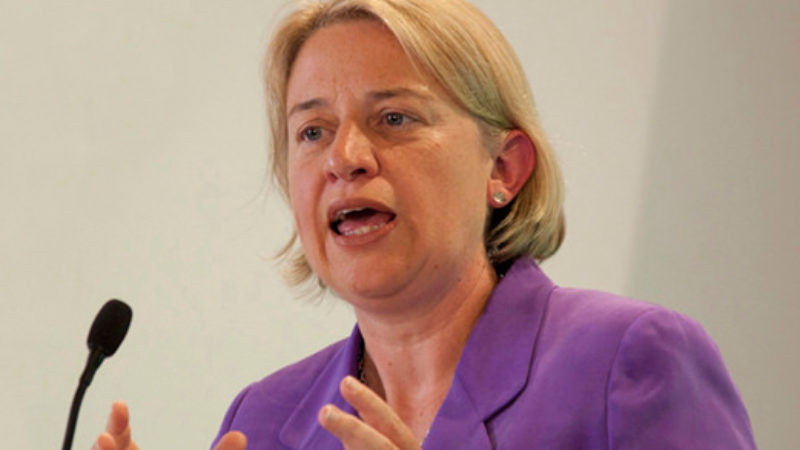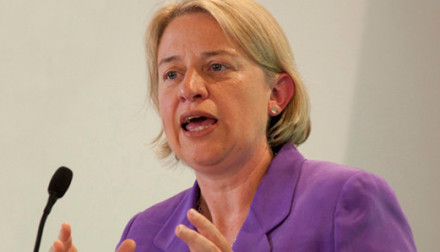

Judge us on our policies – the Greens always say. So that’s what we should do. When the Green party leader Natalie Bennett was asked yesterday how much they thought it would cost to build 500,000 houses, she didn’t have an answer. She then went on to reveal she didn’t even know how they would pay to build those houses. This was day one of their election campaign.
One mind blank is forgivable but when three Green leaders were later asked how they would pay for their other key policies like ending austerity, scrapping tuition fees and cutting fares by 10%, they didn’t have an answer either.
Two developments are now almost certain: when the Green manifesto is finally out everyone will pore over it to see if their promises are indeed properly (and independently) costed. Secondly, the Greens are likely to be under far more media scrutiny from now on. Journalists smell their blood and know that car-crash interviews with party leaders are gold dust (just ask Nigel Farage). The Greens have wanted to be taken seriously for years, so its only right they are also put under the microscope.
What’s more surprising is that they didn’t see this coming.
Last month, after Natalie Bennett was on Sunday Politics, two other major Green policies fell apart. She said their flagship policy of giving everyone a Citizen’s Income, costing approximately £280 billion, would partly come from ditching the admin costs of means-testing. She later admitted there would have to be means testing anyway to ensure vulnerable families wouldn’t lose out. A week later it was spun as a ‘long term vision’ thing even though Bennett had said on the programme it would be costed in the manifesto.
And then there was the policy on terrorism (PD443), which initially stated that it should NOT be a crime “simply to belong to an organisation or have sympathy with its aims”. A week later the Green leader admitted that showing sympathy for a proscribed terrorist organisations could in fact get someone arrested.
What does it say about the Green party’s policy making process that their ideas fall apart as soon as they are scrutinised?
That aside, now the Greens have an inkling of what it’s like to be in Labour policy-making, where an entire swathe of the press is always looking for the slightest excuse to attack you with a front-page splash. If Bennett was under constant scrutiny, ridicule and attacks like Miliband has been for the past five years, she wouldn’t have lasted a year. Keep that in mind when you next swallow a right-wing press interpretation of what Labour are apparently saying.
But there is a broader point here too. Greens have attacked Labour for years for not being radical enough. Some of those criticisms (especially on rail nationalisation) are justified, but these incidents show that eye-catching and radical policies aren’t easy when they have to be costed and explained to hostile journalists.
Green party supporters don’t make it easier by misleading their own followers by claiming (as George Monbiot and Mark Steel have done) that Labour and Tories are exactly the same. In fact, the Coalition has committed to austerity 7.5 times larger than Labour’s plans. It is genuinely deluded to claim Labour and Tory austerity is the same.
Most of us recognise that Westminster is broken and many people don’t feel it connects with them. A lot of people rightly think the three main parties sound the same and don’t reflect the diversity of modern Britain. I get it.
But that doesn’t mean the political parties are the same. And its worth asking whether the radicals who claim others are the same can stand up to scrutiny. The Greens mean well but they’re not even prepared for an election campaign, let alone anything more.




More from LabourList
‘Council Tax shouldn’t punish those who have the least or those we owe the most’
Two-thirds of Labour members say government has made too many policy U-turns, poll reveals
‘Two states, one future: five steps on the path to peace for Israelis and Palestinians’